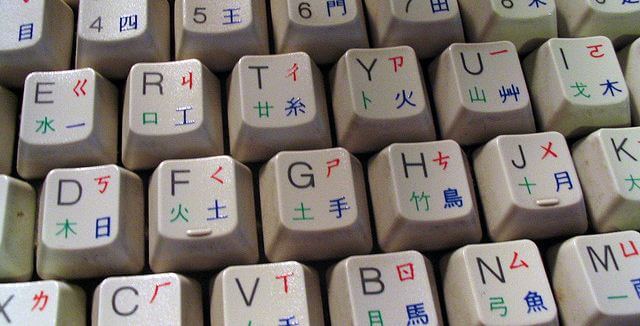
It seems there are quite a few friends coming over to visit this summer and I’m helping plan their stay, so this is the first in a short series of posts on making the most of a trip to China.
If you’re only coming for a couple of weeks it’s a bit unlikely you’ll learn Mandarin so here’s a very rough guide to making yourself understood, beyond just pointing at things.
It’s all phonetic, so you’ll probably be pronouncing stuff in my slightly Beijing tainted accent. Substitute an ‘r’ where you see a double ‘rr’ to sound more correct. Speaking too slowly won’t help you be understood.
It’ll all be fine until they go off script…
Basics
Yes Shrr
No Boo-shrr
I can’t understand Wo boo dong
I’m sorry Doo-ay boo chee
Thank you Shieh shieh
Right/correct Doo-ay
Wrong/incorrect Boo doo-ay (boo makes the following word negative, so literally this means not correct)
Greetings
Hello Nee how
How are you? Nee how mah?
Good/ok How
Not good Boo how
Good morning Dzaoww-shung haoww
Good afternoon Sshyah-woo haoww
Good evening Wan-shung haoww
May I ask your name? Ching-win gway-shing
My name is… Waw jeow
What is your surname? (formal) Neen gway sshing?
My surname is … Waw sshing
What’s your name? (informal) Nee jee-oww shenn-muh ming-zuh?
I am… Waw shir
I am English Waw shir Ying gwaw ren
I am American Waw shir May gwaw ren
Good bye Dzai jee-en
Bye-bye. Bye-bye (more common than Goodbye, it’s easy to get into the habit of saying bye-bye when you return to your home country)
Pronouns
I / Me Waw (or War)
You Nee
He / She / It Tar
Asking for things
Have Yoh
Don’t have May-yoh
Do you have…? Yoh-may-yoh…?
I have… Wor yoh…
I want Wo yao
Preferences
I like Wor shee hwan
I don’t like … Wor boo-sshee-hwan …
Do you like China? Ni shee hwan john gwoah?
That’s good how
That’s not good boo how
It was very good hen how
Excellent how Jee-luh
Good looking How can (applies to people, places, clothes, whatever).
I want … Waw yaoww …
I don’t want … Waw bu yaoww …
Do you want …? Yaoww-boo-yaoww
I’m hungry. Waw urr luh
I’m thirsty. Waw ker luh
I’m tired. Waw lay luh
Food and Drink
Chopstick kwhy za
Knife dow
Fork char z
Spoon sheow z
Water shway
Coke kur lur
Beer peejo
Coffee kah-fay
Mineral water kwong chwen shway
Orange juice juzi shway
Tea chah
Bottoms up! Cheers! Gan bay
I want to eat pig meat Waw yow chuh joo row
I don’t eat pig meat Waw boo chuh joo row (There are many Muslims in China, so if you want to avoid pork look for a restaurant with Arabic writing and a Halal sign).
I want rice Waw yow mee fan
one bowl Ee wan
I want to eat vegetables Waw yow chuh tsai
I want beer Waw yow pee jyoo
tasty/delicious How chuh (literally, good food)
good drink How her
Bill my dan
Numbers
1 ee
2 arr
2 lee-an-guh – a couple. Very commonly used for quantities instead of using two
3 san
4 srr
5 woo
6 leo
7 chee
8 bah
9 jeo
10 shrr
11 shrr ee
12 shrr arr
20 arr shrr
26 arr-shrr-leo
30 san shrr
100 ee bye
127 ee-bye-urr-shrr-chee
1,000 ee chee an
10,000 ee wan
Price
How much money (does it cost)? Dwor-sshaoww chyen
3 yuan/RMB (formal) San ywen
3 yuan/RMB (informal) San kwhy
Too expensive Tie gway luh
Time
How long (time)? Dwor jyoh?
One hour (hour) Ee-guh sshyaoww-shrr (jong-toh)
2 hours Lyang (urr) guh sshyaoww-shrr
30 minutes San-shrr fnn-jong
07:00 Ling-chee dyen jong
14:30 Shrr-srr dyen san-shrr
One day (for hotels) Ee tee-en
Taxis
Taxi Choo zoo cher
I want to go to X Wo yao tsoh X
I want to go there Wo yao tso nar (more useful if you’ve got a map or business card with Chinese names – your hotel can usually supply these)
Directions
Stop! ting
Turn left zaw
Turn right yo
Go straight chee’an
Here Jur lee
I want to go to… Waw yaoww chyoo…
I want to go to the toilet Waw yaoww chyoo tser-swor.
Where is …? … dzeye nah-lee?
Where is the bathroom? Sshee shoh jyen dzeye nah-lee?
Useful Phonetic Phrases
Where is the toilet? chir zwo zai nar
You’re welcome Boo ke chee
What is this? Jer shrr shnn-muh?
This is … Jer shrr …
Please help me. Ching bung-joo wor
Boss Lao Ban – useful for attracting the attention of small business owners
Foreigner Lao Why – literally old outsider – an old way of saying foreigner. People may call you this
This is obviously a long way from perfect, but may be helpful. If you’re staying longer and want to get bit more involved then I found that the Lonely Planet Mandarin Phrasebook
had the simplest phonetic versions along with a very clear guide to pinyin and grammar. Beyond that, it’s time to attend a Mandarin course. I tried intensive Chinese lessons but had far more success with a one-to-one teacher.
Perhaps better Chinese speakers can offer improvements and suggestions for more useful phrases in the comments below.






Pingback: Mica Ivealis (@MicaIvealis)
These are all pretty good. I have written a whole book of these.
Check it out at http://www.KneeHowdy.com
Mine are a little bit different though.
Just downloaded the first chapter. Very good concept.
Pingback: Nathan Cain (@kneehowdy)
Pingback: @ACoupleTraveler
What is missing is the associated phonetics. I know enough from hearing to read correctly what you have written, but I am easily confused by the way the words are written.If this is PinYin, which I suppose it HAS to be for Potunghwa, then we need a link to this, preferably as a pop-up, but maybe that is asking TOO much [pop-up].
The more I revisit this page, the more I think readers would be better off going to Google Translate, as their text to speech is getting better all the time.
Bravo! You even captured the Beijing accent in your phonetic renderings, lol. Roger got it right. Mandarin (and its dialects) is tone-based, so “Waw Yaow” can mean “I want”, “I bite”, “I sway”, or “I ask” – depending on the tone used to say “Yaow”. There are only four tones in Mandarin, so it’s not too bad. There are five tones in cantonese, and it has words not even found in standard mandarin.
Mandarin is also highly contextual, so words in each tone can mean different things in different situations, too. Learning this pedagogically is unfortunately much harder.
But your level is already impressive!